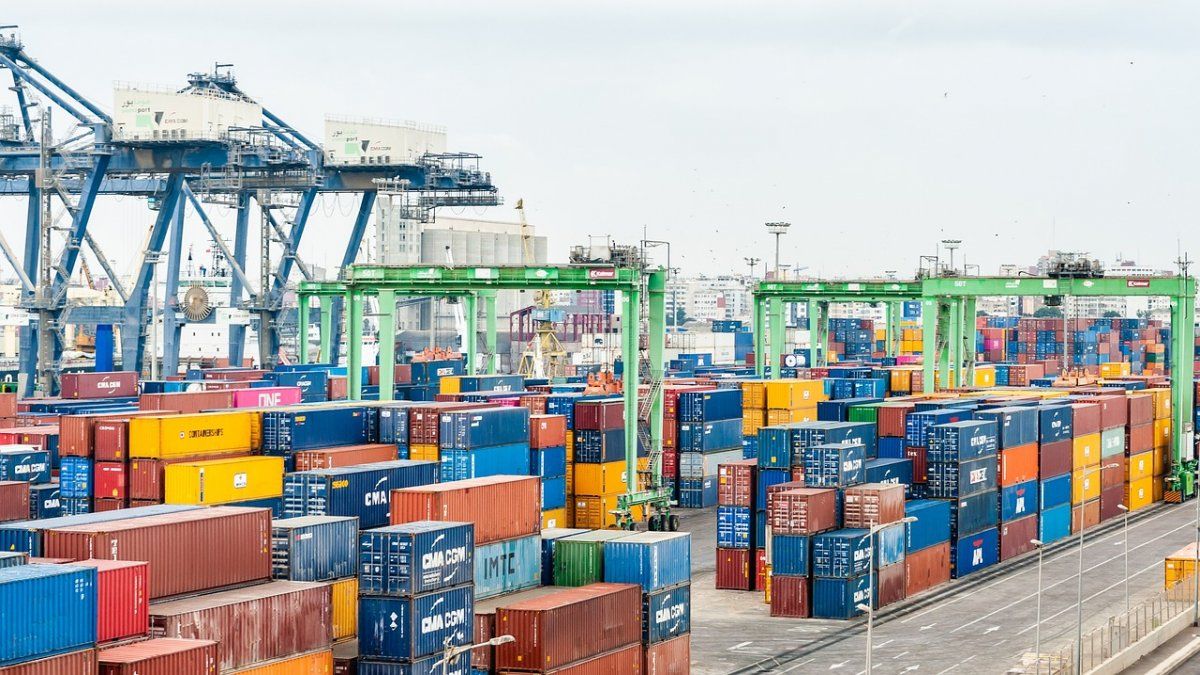The Minister of Economy, Sergio Massa, announced from Brazil a new mechanism to finance imports for the industry. He did so after meeting with President Luiz Inácio Lula da Silva, with whom they also discussed inviting Argentina to join the BRICS. The agreement with Brazil arises in a context of strong pressure from the International Monetary Fund (IMF) to contract imports by 30% so that the trade balance improves and that there is an accumulation of reserves. The Government will insist on “sustaining economic activity”.
The meeting between Massa and Lula da Silva took place this Monday afternoon at the Planalto Palace, in Brasilia. Massa then made the announcements at a press conference alongside his Brazilian counterpart, Fernando Haddad. There they agreed on a financing instrument for exports from Brazil to Argentina for US$600 million, for the automotive and auto parts sectors. “They are highly integrated, they work together and with shared processes,” Massa explained.
The mechanism was agreed upon in a joint effort with the president of the Development Bank of Latin America (coffee), Sergio Díaz-Granados, and authorities from the Brazilian Development Bank (BNDES), given that it will be these two monetary authorities that will carry out the financing. Massa defined the understanding as a “mechanism to overcome ideas” that had been working with Haddad’s partner. The efforts to finance Argentine imports (and exports from Brazil) started exactly one year ago, in September 2022, with efforts by the Argentine ambassador to Brazil, Daniel Scioli.
At the press conference, after Massa’s words, Haddad spoke, who informed that it will be the bank BNDES the fact that will grant guarantees to Brazilian exportersand then CAF operates with a counter-guarantee, so that Argentina “does not need to use its reserves”while “Brazilian exporters guarantee their sales to Argentina.”
Despite the fact that the invitation for Argentina to join the BRICS bloc from 2024 was on the meeting’s agenda, there was no announcement about financing imports from Brazil in yuan available from the swap agreed with China, which was one of the agendas that the Central Bank had carried out.
The Government repeats that the objective is to “sustain the activity”. If agriculture, the most affected sector of the economy as a result of the historic drought, were not considered, economic activity would have grown 0.9% during the first half of 2023. This is clear from one of the latest reports by Nadin Argañaraz, president of the Institute of Fiscal Analysis (Iaraf).
IMF pressure
In fact, in the staff reports IMF published on Friday, the Fund assures that “despite the historic drought, non-agricultural activity was maintained during the first part of the year, supported by solid domestic demand.” But he adds that this occurred “at the expense of internal and external imbalances, as shown by inflationary pressures and sharp falls in reserves, to historically low levels.”
Forward, The IMF calls for a 30% collapse in imports, and warns of the “unprecedented” growth in the financing of purchases abroad, which he estimates at least US$10,000 million. “Big efforts will now be required to rationalize imports and ensure a gradual reduction of financing to normal levels. It is expected that the exchange rate realignment, the temporary tax measures and the tightening of administrative measures will support this understanding”, says the document, which refers to the PAIS tax on imports and the SIRA system.
Thus, the IMF recommends a “30% reduction in the volume of imports accumulated during the rest of 2023, in relation to July”, and a 50% reduction in commercial financing by the end of 2024. “The payment of this debt of imports will represent a drag on the accumulation of reserves in the short term, as well as a risk if it is not managed properly”, adds the IMF report. In this way, they estimate that the trade balance can be reduced from a deficit of US$6.5 billion in the first semester, to one of US$1.5 billion by the end of 2023.
Source: Ambito




